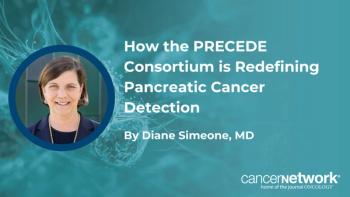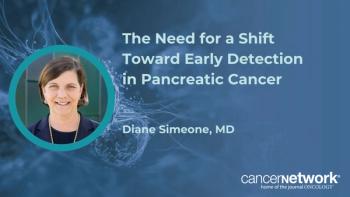
Regular Aspirin Use Reduced Risk for Pancreatic Cancer
The regular use of aspirin reduced the risk for pancreatic cancer by almost 50%, according to the results of a Chinese study.
The regular use of aspirin reduced the risk for pancreatic cancer by almost 50%, according to the results of a Chinese study
“We observed a significant inverse relationship between aspirin use and risk of pancreatic cancer in a large representative sample of Chinese individuals,” wrote study author Harvey A. Risch, MD, PhD, professor of epidemiology in the department of chronic disease epidemiology at the Yale School of Public Health, Yale School of Medicine, and Yale Cancer Center, and colleagues. “The pattern of risk reduction was very similar to that seen in other recent studies in the United States and elsewhere.”
For the study, the researchers recruited patients with newly diagnosed pancreatic cancer at 37 Shanghai hospitals from December 2006 to January 2011. These 761 participants were matched with control patients (n = 794) from the Shanghai Residents Registry. Participants were interviewed in person about regular use of aspirin, tablets per day or week, and ages that the use started and stopped.
Participants defined as ever-regular users of aspirins had a significantly lower risk for pancreatic cancer (odds ratio [OR], 0.54; 95% CI, 0.40–0.73). According to the analysis, risk for pancreatic cancer decreased 8% for each cumulative year of aspirin use. Ever-regular use of aspirin was associated with a lower risk for cancer in women (OR, 0.42) than in men (OR, 0.64). Data also showed that quitting the use of aspirin within the last 2 years was associated with more than double the risk for pancreatic cancer.
“Although the choice to use aspirin for disease prophylaxis generally depends upon evaluated risks of cardiovascular disease, colorectal cancer, etc, it is likely that such use at least does not increase risk of pancreatic cancer and very probably appreciably lowers it,” the researchers wrote.
The meta-analysis that included this and 18 other studies showed “a trend in the OR for ever-regular use of aspirin is evident according to increasingly more recent midpoint of when the aspirin exposures were ascertained in the study,” for both any aspirin and for low-dose aspirin, according to the study. Specifically, the odds ratio for regular aspirin use and pancreatic cancer risk decreased by 2.3% per year through to present day.
“Although our study results and the declining OR trends in the literature provide evidence for a beneficial effect of aspirin use on risk of pancreatic cancer, some limitations of this work should be considered,” the researchers wrote.
According to Risch, the main limitation of the Shanghai study is that it is a case-control study that relied on participants accurately reporting past aspirin use.
Newsletter
Stay up to date on recent advances in the multidisciplinary approach to cancer.










































